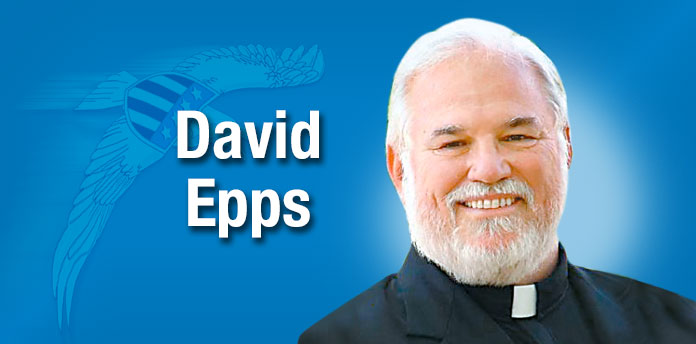A trend I have noticed over the last few years is the proclamation of some military veterans that, “My Oath of Enlistment has no expiration date.”
A number of cottage industries have come into being that lend support to that statement. Bumper stickers, baseball caps, plaques, patches and t-shirts advertise the belief of the consumer that their oath of enlistment is a lifetime commitment. I disagree.
When I enlisted in 1970, I raised my hand and swore an oath. Here is what I swore to do: “I do solemnly swear (or affirm) that I will support and defend the Constitution of the United States against all enemies foreign and domestic; that I will bear true faith and allegiance to the same. That I will obey the orders of the President of the United States and the orders of the officers appointed over me, according to regulations and the Uniform Code of Military Justice. So help me God.”
My total enlistment was for six years. Not all of that time would be on active duty. In fact, I only spent two years on active duty and a year and a half in the active reserves. The other two and a half years were in the “inactive reserves” where I really had no responsibilities or duties, could grow my hair long, and go back to college. But, if the nation was under threat, I could be pulled back on to active duty any time during that “inactive reserve” period.
Technically and in reality, I had a six-year obligation to the United States Marine Corps and my Honorable Discharge certificate arrived in the mail in 1976 — after my obligation was over.
My oath of enlistment expired on the day of my final discharge. With that oath completed, I have no obligation to, for example, obey the orders of the President of the United States. Why? Because he is no longer my personal Commander-in-Chief. I am no longer subject to the Uniform Code of Military Justice.
As I have looked over some of the musings of some people who claim that their oath of enlistment has never expired, I see something that is potentially dangerous. It seems to me that a number of these veterans believe that they reserve the right to “support and defend the Constitution of the United States against all enemies foreign and domestic.” But who determines who those enemies are?
A disgruntled military veteran or a fanatical “patriot” who decides to assassinate members of Congress, or the President himself, is the stuff of novels and movies but is a frightful and criminal action in real life. In novel and movies, these individuals are often the heroes but, if such an individual were to do the same in the real world they are despised for generations. Think “Lee Harvey Oswald” or “John Wilkes Booth.”
Currently five members of the group “Oath Keepers” are currently awaiting trial on federal charges of seditious conspiracy because of alleged involvement in the January 6 so-called insurrection. Several prominent leaders of the “Proud Boys” group are also facing similar charges in a separate trial. Seditious conspiracy is defined as two or more people plotting “to overthrow, put down or to destroy by force the government of the United States.”
This is a serious charge that carries with it a maximum sentence of 20 years in a federal penitentiary. And, while an argument can be made that the riots in cities across the country during the summer of 2020, that resulted in over 2 billion dollars in destruction and resulted in several deaths, are virtually ignored by politicians and the media, the fact remains that the January 6 incident was seen as an attack on the government itself, even though those who stormed the Capitol were a small minority of marchers present on that day.
I am not an advocate of armed revolution. I love my country and consider myself a patriot. But I simply don’t agree that my oath of enlistment is open ended. And neither does the military.
If in some bizarre circumstance, I was allowed back into military service, one of the first things that would happen is that I would be required to say the Oath of Enlistment. Why? Because even though I swore an oath in 1970, that was then, and this is now. My original oath was for back then and expired when I was honorably discharged.
In fact, if a person re-enlists for another period of time, that person is also required to retake the oath. The prior oath did not carry over to the reenlistment.
My Commanders-in-Chief were Richard Nixon and Gerald Ford, not Donald Trump or Joe Biden. If one is unhappy with elected lenders, the legal means to effect change is at the ballot box. After all, life in America isn’t a novel or a Hollywood movie.
[David Epps is the Rector of the Cathedral of Christ the King (www.ctk.life). Worship services are at 10:00 a.m. on Sundays but is also live streamed at www.ctk.life. He is the bishop of the Diocese of the Mid-South (www.midsouthdiocese.life) and may contacted at [email protected].]













Leave a Comment
You must be logged in to post a comment.